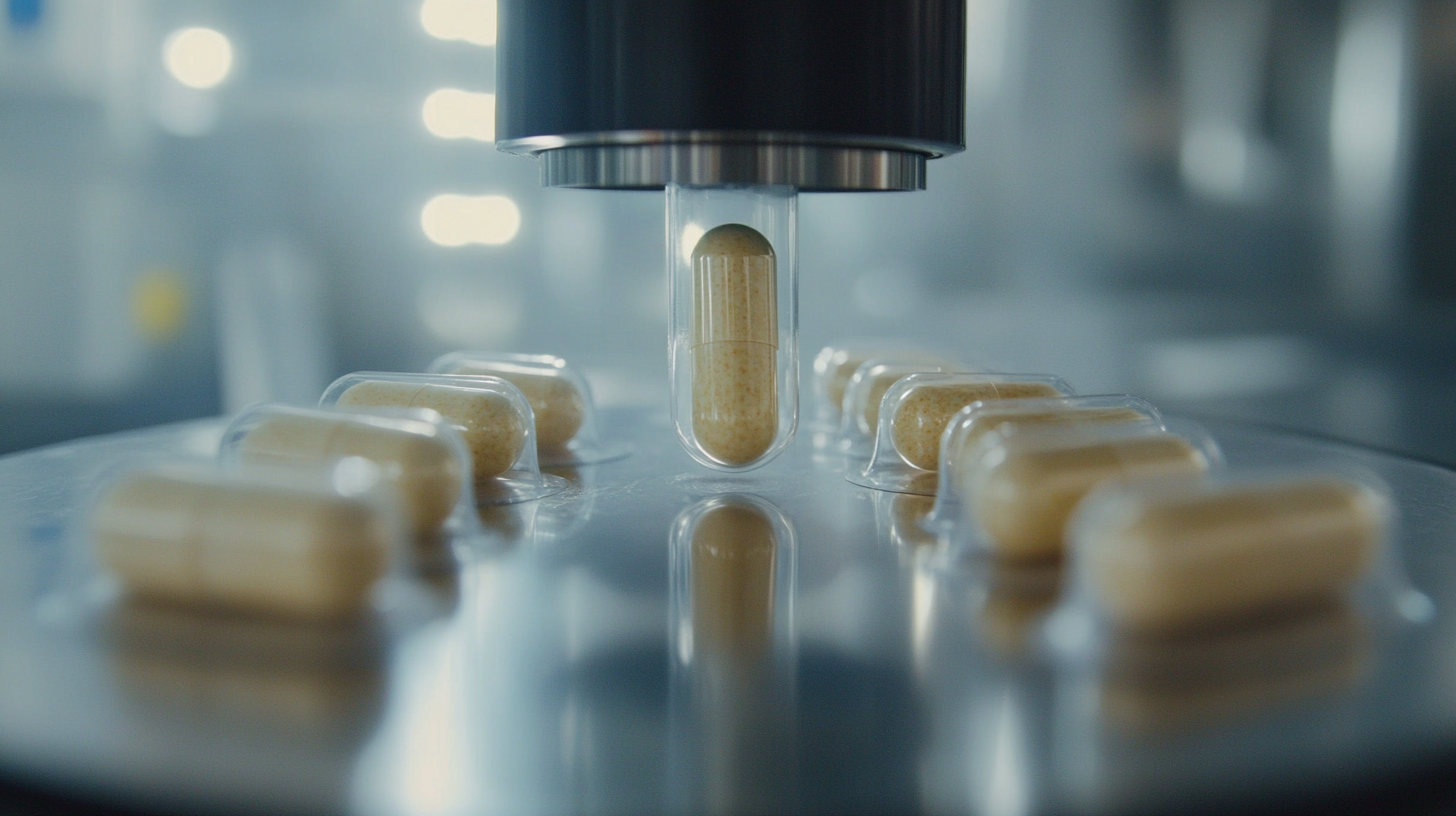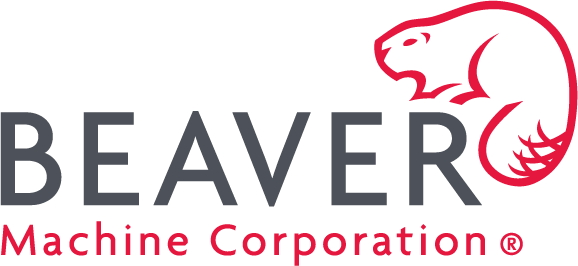Future Innovations in Capsule Dispensing Technologies and Essential Approaches for Global Buyers
Over the past few years, the demand for dispensing solutions that are effective and reliable has witnessed an impressive rise, especially in the pharmaceutical industry and nutraceuticals. According to Allied Market Research report, Capsule Filling Machine worldwide market is to be worth $2.01 billion in 2026 with a CAGR of 5.5%. This growth trajectory highlights the need for accuracy and flexibility in capsule production and dispensing. Accordingly, the Capsule Dispenser Machine forms a crucial part of this development designed to enhance precision and facilitate the way work is done as it responds to the concerns of buyers around the world in implementing modern-day dispensing systems.
As innovations in capsule dispensing technology continue to progress, varying trends re-emerge that are to redefine the industry landscape. Projections indicate automated systems will be central to improving operational efficiency and to minimizing waste. The smart and AI-enabled Capsule Dispenser Machines are expected to provide timely monitoring and management capabilities which improves reliability and safety. For global buyers, it is critical to understand these innovations and pivotal strategies to put them in a position to make an informed decision consistent with their operational requirements and sustainability agenda.

Emerging Trends in Capsule Dispensing Technologies for Healthcare Providers
Important changes within the healthcare industry include churning out capsule dispensing technologies that are necessary for the effective performance of medical providers. Especially now that efficiency and accuracy in medication dispensing are greatly emphasized, more and more health care institutions have invested in the advanced versions of sophisticated systems in distributing medicines. Emerging trends would exemplify machinery integration with automation, coupled with artificial intelligence input on exact dosages and decreased human error-a critical aspect in patient safety. Recently launched innovation is intelligent capsule devices dispensing on Internet of Things (IoT). These smart dispensers can communicate in real-time to the healthcare management system and monitor closely the levels of inventory and medication restocking. This usually not only improves operational efficacy but also would entail giving healthcare providers the time to do more patient care since dispensing is already digitally managed. Customizing dispensing units is also gaining traction, giving freedom for health professionals in configuring their systems depending on the patients' needs. These are specific for patients since dosages and schedules would apply, something which is great for a world where more personalized medicine becomes the norm. In this way, anyone who embraces these technologies would also improve the effectiveness of patients regarding their medication while reducing the amount of wastage, thus improved clinical outcomes and a more sustainable healthcare environment.

Key Features to Consider When Choosing Capsule Dispensing Solutions
In their selection of capsule dispensing solutions, global buyers must prioritize several key attributes to ensure that they will ultimately fulfill their needs. One major consideration is the variable adaptability of the technology in terms of capsule sizes and formulations. Such a flexibility permits dispensing of a wider assortment of products in aptitude to meet more diverse demands of the consumers. Another motif is the accuracy of dosage delivery, which becomes significant in cases like pharmaceuticals and nutraceuticals when an error can have dire consequences. In this respect, buyers should look forward to systems that are advanced and equipped with robotics or AI for achieving accuracy and minimizing human error.
Another important aspect is the compatibility of the dispensing system with existing production lines. Minimal disruption and maximum operational efficiency can be guaranteed through the integration. Potential buyers should also inquire about the installation's ease and the learning curve for their employees. Besides that, it is essential to think about the long-term maintenance and upgrade costs. A solution offering a reasonable overall approach doesn't just consider the initial price but also considers the total cost of ownership, which helps buyers make good decisions consonant with their financial strategies.
Another increasing trend is towards sustainability in the way companies manufacture their product. Buyers ought to consider dispensing capsule solutions that are positioned around using eco-friendly materials and energy-efficient operations. This does keep up with the global trends of reducing carbon footprints while appealing to a growing group of environmentally concerned consumers. With more innovations being ushered into the industry, staying in touch with ongoing innovations will help in making informed and strategic purchasing decisions.

Impact of Automation on Efficiency and Accuracy in Capsule Dispensing
The pharmaceutical industry is undergoing a monumental shift in automation, which has consequently brought changes in capsule dispensing technologies. In a report published by Grand View Research, the global market for capsule filling machines is expected to rise to USD 2.1 billion in 2025, highlighting the growing dependence on automated systems that enhance efficiency and accuracy. This development of advanced dispensing technologies allows manufacturers to refine their processes while minimizing human error and increasing throughput.
Besides enhancing operational efficiency, automation of capsule dispensing also considerably improves accuracy in delivering dosages. The research conducted by the International Society for Pharmaceutical Engineering estimates that automated dispensing systems can bring down the product recall rates by as much as 30 percent compared to unautomated systems. This is made possible largely through the process of electronic measurement of ingredients and real-time monitoring to ensure that every capsule conforms to the most rigid quality standards.
Additionally, automation enhances inventory management and reduces the training time for personnel. With robots doing the repetitive work, pharmaceutical companies are allowed to assign their workers to resource-dependent jobs, thus increasing their productivity. A survey by the Pharmaceutical Research and Manufacturers of America indicates that organizations employing automated system processes reduce operational costs by 25 percent within the first two years. This trend will thus prove beneficial for large manufacturers, as it will greatly affect global buyers keen on optimizing their supply chains and securing reliable performance from their capsule dispensing process.

Sustainability Practices in Capsule Dispensing for Modern Buyers
More than ever, consumers are orienting their purchasing behavior toward sustainability practices regarding capsule dispensing technologies. This is in direct response to increased consumer awareness and demand for green options, leading brands into the forefront of discovering innovative materials to meaningfully challenge conventional designs. Recent developments point toward an astonishing trend whereby unconventional materials like seaweed, cow intestines, and even coffee grounds go into making sustainable alternatives to packaging. This shift serves to reduce the waste load while also adding the much-needed appeal to the product in a world where consumers are now tipping towards environmentally conscious brands.
The sustainable packaging industry is expected to reach United States Dollars 643 billion by 2027, with a CAGR of 7.7%. This space is experiencing tremendous growth, driven by biodegradable and compostable developments, which considerably influence capsule dispensing technologies. Simple enough, for innovations such as these to be accepted in capsule designs, it is integral for global buyers to align their purchasing choices with sustainability goals.
As brands continue to innovate within the capsule dispensing space, the implementation of sustainable practices is now paramount. Incorporating eco-friendly materials allows companies not just to respond to current market dynamics but also for a good cause. Such a paradigm shift will allow designers and manufacturers to explore new avenues for not only functional products but products beneficial to the planet, thereby redirecting the course of consumption for future generations.
Global Market Insights: Navigating Supply Chains for Capsule Dispensing Equipment
Innovations are abounding in the industry, and so is the market for capsule dispensing equipment. For buyers looking to invest in advanced dispensing technologies, navigating the best shipping channels would matter in going for manufacturing companies that revolutionize and optimize their supply chains. The rise of automation and AI has enabled businesses to streamline their operations, lower costs, and enhance the quality of their products. However, customers have to be ready to evaluate suppliers based not only on the products they offer but also their ability to provide flexible, reliable supply chain solutions.
Buyers must speak the same language-the global buyer, in particular, must speak transparency and communication with suppliers. Even the level of knowledge regarding sourcing and production processes can influence the purchasing decision. In addition, forging closer partnerships with strategic suppliers can improve responsiveness and support against the backdrop of market demand fluctuations. Those who continue to maintain a proactive approach in managing their supply chains will only deal with availing themselves of new technologies and market opportunities competitively as the industry of capsule dispensing evolves.
Regulatory requirements as well as sustainability practices, however, are growing into more and more important issues. Buyers are encouraged to find suppliers who comply not only with the local regulations but also favor environmentally friendly practices. The emphasis on sustainability is going to affect the brand and its loyalty to customers considerably. Buyers can assure themselves they are making a positive contribution to the world market while fulfilling the consumer requirement for responsible manufacturing by partnering with suppliers committed to ethical practices.
